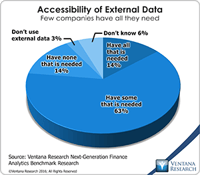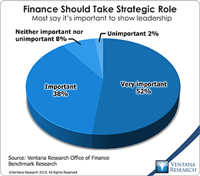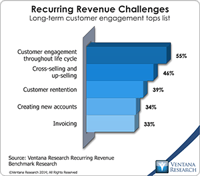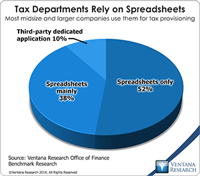Using information technology to make data useful is as old as the Information Age. The difference today is that the volume and variety of available data has grown enormously. Big data gets almost all of the attention, but there’s also cryptic data. Both are difficult to harness using basic tools and require new technology to help organizations glean actionable information from the large and chaotic mass of data. “Big data” refers to extremely large data sets that may be analyzed computationally...
Read More
Topics:
Big Data,
Data Science,
Planning,
Predictive Analytics,
Social Media,
FP&A,
Office of Finance,
Operational Performance Management (OPM),
Budgeting,
Connotate,
cryptic,
equity research,
Finance Analytics,
Human Capital,
Kofax,
Statistics,
Analytics,
Business Analytics,
Business Intelligence,
Customer Performance Management (CPM),
Data,
Datawatch,
Financial Performance Management (FPM),
Kapow,
Sales Performance Management (SPM),
Supply Chain Performance Management (SCPM),
Strata+Hadoop
The imperative to transform the finance department to function in a more strategic, forward-looking and action-oriented fashion has been a consistent theme of practitioners, consultants and business journalists for two decades. In all that time, however, most finance and accounting departments have not changed much. In our benchmark research on the Office of Finance, nine out of 10 participants said that it’s important or very important for finance departments totake a strategic role in running...
Read More
Topics:
Big Data,
Planning,
Predictive Analytics,
Social Media,
Governance,
GRC,
Mobile Technology,
Office of Finance,
Budgeting,
close,
Continuous Accounting,
Continuous Planning,
end-to-end,
Human Capital,
Tax,
Analytics,
Business Analytics,
Business Collaboration,
CIO,
Cloud Computing,
In-memory,
Uncategorized,
Business Performance Management (BPM),
CFO,
CPQ,
Financial Performance Management (FPM),
Risk,
CEO,
Financial Performance Management,
FPM
Aria Systems provides companies with software for managing subscription or recurring revenue business models. A recurring revenue business models includes three types of selling and billing structures: a one-time transaction plus a periodic service charge; subscription-based services involving periodic charges; or a contractual relationship that charges periodically for goods and services. Aria’s cloud-based software addresses key requirements of users in the marketing, sales, operations and...
Read More
Topics:
SaaS,
Sales,
Customer Engagement,
Customer Experience,
ERP,
Marketing,
NetSuite,
Office of Finance,
Operational Performance Management (OPM),
Recurring Revenue,
customer life cycle,
Business Analytics,
Cloud Computing,
Customer Service,
Business Performance Management (BPM),
Customer Performance Management (CPM),
Financial Performance Management (FPM),
Sales Performance Management (SPM),
billing software
The steady march of technology’s ability to handle ever more complicated tasks has been a constant since the beginning of the information age in the 1950s. Initially, computers in business were used to automate simple clerical functions, but as systems have become more capable, information technology has been able to substitute for increasingly higher levels of human skill and experience. A turning point of sorts was reached in the 1990s when ERP, business intelligence and business process...
Read More
Topics:
Sustainability,
ERP,
GRC,
Office of Finance,
audit,
finance transformation,
Human Capital,
LongView,
Tax,
Analytics,
Business Analytics,
Governance, Risk & Compliance (GRC),
Oracle,
Business Performance Management (BPM),
CFO,
Financial Performance Management (FPM),
Vertex,
FPM,
Innovation Awards,
Thomson-Reuters multinational














